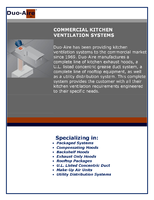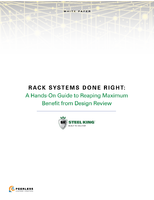Non-Halogenated FR LFT-PP Products exhibit optimal mechanicals.
Press Release Summary:
Consortium of Dutch companies - thermoplastics compounder, colorant house, molder, and OEM - joined together to develop colored and flame-retarded (FR) long-fiber thermoplastic (LFT)-polypropylene (PP) compounds and masterbatches, properties of which exceed those of non-FR base resin. Summing up work over last 2 years, TULiPPS' Paul Stassen said this project exemplified what can happen when companies "join forces" to share knowledge, pool resources, and work as integrated supply chain.
Original Press Release:
Dutch Companies Develop New Colored, Non-Halogenated FR LFT-PP Products Whose Mechanicals are Higher than Non-FR Base Resin
Glass-Reinforced Polypropylene Offers High but Balanced Mechanicals with Non-Halogenated Flame Retardance Plus Long-Term Weatherability in Colors
ENSCHEDE, THE NETHERLANDS - Thermoplastic compounding requires a careful balancing act as improving one property can unintentionally have negative consequences for another property, leading to compromises in the final compound because it was not possible to achieve desired performance for all properties simultaneously. This is especially common in situations where it is necessary to have both a good balance of mechanical properties as well as halogen-free flame retardance (FR), because modification techniques that increase FR properties tend to reduce mechanicals and service life. However, for at least one thermoplastic resin family, this seems no longer to be the case, thanks to a consortium of Dutch companies - including a thermoplastics compounder, colorant house, molder, and OEM- that have joined together to develop a new family of colored and flame-retarded long-fiber thermoplastic (LFT)-polypropylene (PP) compounds and masterbatches whose mechanical properties actually are better than those of the non-FR base resin.
The technology required to develop the new FR LFT-PP grades arose from the needs of one member of the consortium - TULiPPS Solar B.V. (Eindhoven, The Netherlands), a startup company working on a new composite-based solar photovoltaic (PV) module system for flat roofs - to find a flame-retarded version of the LFT-PP materials targeted for the system's structural components. New regulations are anticipated in many geographies requiring all polymeric materials used on roofs to be flame retarded. Since the composites used in TULiPPS' module system have been formulated to offer an extremely demanding target service life of 25 years or longer, company founder and managing director, Paul Stassen wanted to ensure the units would comply not only with current regulations but also with future requirements where possible. That presented an interesting challenge, since the composite module system needed both to be flame retardant as well as lightweight and thin, and therefore required high stiffness and strength plus excellent long-term durability - properties that can be affected by the non-halogenated additives package.
Fortunately, Stassen has a strong background in polymer additives and compounding himself, plus a network of industry-leading contacts developed during his many years working on LFT-PP compounding for the automotive-composites industry. To solve his formulation challenges, he turned to companies whose expertise could help meet the extremely challenging performance he sought for his solar PV composite support structure.
"What we are trying to make LFT-PP polymers do for the TULiPP's module is a breakthrough that has never been done before - not even in the demanding automotive industry where these materials got their start," explains Stassen. "Meeting any one of these criteria would have been challenging enough, but meeting all of them at once - high but balanced mechanicals, high flame retardancy without use of brominated flame retardants or antimony, good processing, good aesthetics, and service life that is two-and-a-half-times longer than automotive specifications - really provided us with major challenges as well as opportunities. Balancing stiffness and toughness with FR was particularly difficult, because everything you do to improve halogen-free flame retardancy usually has a negative effect on mechanicals, processing, and service life."
Stassen looked to his previous automotive-composites contacts for a creative compounder with a lot of formulation experience, particularly in the area of flame retardancy. He chose to partner with RESIN (Products & Technology) B.V. (Enschede) to find the right recipe to meet his project's demanding performance specifications.
About their work together, Frans Haafkens, managing director at RESIN notes, "As a company philosophy, RESIN always opts for the safest and most environmentally sustainable solution we can find for our custom compounds and masterbatches. With our new halogen- and antimony-free, ECO-compliant flame retardant recipes for polypropylene, we have achieved the difficult balance of good processing and mechanical properties at an attractive cost. Although it was a lot of work, these new thermoplastic formulations are well positioned to serve demanding market segments such as automotive, consumer electronics, composite pallets and other materials-handling components, as well as roof-mounted solar PV systems."
Meanwhile, recognizing that the solar panel module system would need excellent outdoor weathering for several decades in addition to meeting required mechanical and FR requirements, Stassen also partnered with QolorTech B.V. (Vaassen, The Netherlands), a supplier of custom-color masterbatches, to develop a series of unique colorant packages for the new LFT-PP compounds that would not interfere with the efficiency of the reinforcements. The goal here was to develop three "industrial" colors (grey, green, and blue). Like basic automotive black and unpigmented natural/off-white grades, these new colors would need to look good long term despite exposure to heat, ultraviolet (UV) radiation from sunlight, and other forms of weathering that can affect aesthetics and, more importantly, lead to a deterioration of performance. In the automotive industry, nearly all of the glass-reinforced LFT applications are black or neutral (unpigmented), but as LFT moves into non-automotive markets, it will be necessary to offer a better and broader color palette.
"Colorant packages need to be formulated as carefully as other components of the compound because they can inadvertently contribute to a loss of mechanical properties and service life," explained QolorTech's managing director, Michiel De Jong. "We put our pigment know-how to work in helping formulate unique color masterbatches for these new FR-LFT grades and that knowledge produced materials with good aesthetics and excellent long-term UV protection that do not cause property loss. Of course, having a broader color palette will attract customers from a wider range of industries."
Once a thermoplastic compound was developed and tested on small-scale equipment, it was necessary to identify a commercial molder who could evaluate the compound on production-scale compounding equipment to ensure it processed properly and, once the final formulation work was completed, who would be able to produce the large panel structures commercially for TULiPPS. For this work, voestalpine Plastics Solutions (Roosendaal and Putte, The Netherlands - formerly Polynorm Van Niftrik), the largest automotive LFT molder in the Netherlands, was chosen as the fourth development partner. Not only was the company highly experienced at working with both pelletized LFT and inline compounded (ILC) direct-LFT (D-LFT), but it also had an excellent reputation for quality, and used the latest inline compounding as well as injection and compression molding technologies.
Speaking about their involvement in the project, Huibjan Braafhart, sales director of voestalpine Plastics Solutions noted, "We were impressed by how well these formulations processed, with good flow, no discoloration, and achieving excellent wetout of glass, which can be a problem with FR compounds. Based on the excellent mechanical properties that we measured, this obviously was not a problem with these materials. The unique cost/performance profile of the new flame-retarded LFT-PP grades makes them suitable for large industrial parts in a number of industries and we see enormous commercial potential for these types of thermoplastics. In addition, we are pleased to be a part of this development team, which fits very well with our corporate growth strategy."
Formulation work on the new FR LFT-PP compounds took close to two years to complete, but hopefully will shortly pay dividends for all the companies involved. In-house testing by voestalpine showed the FR-LFT grades - in natural, automotive black, and the three new colors of grey, green, and blue - in many cases actually have higher mechanical properties than those of the non-FR base resin, which is an unusual situation. All compounds featured 30% glass reinforcement, were produced on commercial-scale automotive-industry D-LFT equipment, and were molded on commercial-scale compression presses, and test specimens were subsequently cut from the larger molded plaques. voestalpine used a D-LFT charge pattern that yields a very isotropic distribution of glass in the test plaques. While this yields values that are more conservative than otherwise would be expected in the direction of flow, they are also more representative of the results that would be expected from real industrial parts rather than idealized test specimens.
FR testing to European EVN 1187-2002 standards for roofing-membrane materials was conducted by an independent test laboratory (BDA Dakadvies B.V., Gorinchem, The Netherlands) and mechanical testing was performed by voestalpine Plastics Solutions in the company's internal testing lab using their standard automotive-black LFT-PP grade as the baseline/control.
The new materials are already commercially available from RESIN (Products & Technology) B.V. under the trade name ECO-FORTE(TM) compound. They will be custom formulated and supplied ready to use in a granular/pelletized form factor for direct compounding or dilution in a D-LFT process. All formulations contain a high-quality UV stabilization package for protection against the effects of outdoor weathering.
Summing up the work of the last two years, TULiPPS' Paul Stassen adds, "This project has been an exciting example of what can happen when leading companies join forces to share their knowledge, pool their resources, and work as an integrated supply chain to develop new technology. Without cooperation among all members of the team, we would not have been able to develop these exciting formulations that are now proven recipes. It's funny to think about the automotive-composites industry applying its materials and processing expertise to develop the next generation of solar PV modules, but that's exactly what happened here. Our work represents some real contributions to the state-of-the-art and it will shortly help new industries that haven't yet experienced the benefit of using LFT composites."
For More Information on...
TULiPPS Solar B.V. is a startup company with patent-pending technologies for the next generation of solar PV modules. The company is currently building prototypes that will subsequently be tested by early customers. It hopes to be commercial with its initial "plug-'n-play" products designed for light flat roofs by 2012. For more Information, see: http://www.tulipps.com/.
RESIN (Products & Technology) B.V. is an innovative compounding company with a strong focus on developing and commercializing environmentally friendly, specialty thermoplastic compounds and concentrates. RESIN offers rigid and elastomeric thermoplastic polyolefins whose performance has been enhanced in the functional areas of halogen-free flame retardance, improved barrier properties, and/or improved mechanical properties - with or without colorant. RESIN serves a broad customer base in the automotive, construction, packaging, and consumer-goods industries. For more information, see: resintechnology.nl.
QolorTech B.V. is an independent producer and supplier of industrial coloring solutions for paint, printing, ink, plastic, and other color-use industries. The company provides its unique solutions in the form of pigments, pastes, mono-concentrates, masterbatches, and specialty additives. For more information, see http://www.qolortech.nl/.
voestalpine Plastics Solutions, a division of the Austrian-based steel conglomerate voestalpine AG, specializes in the design and manufacture of structural and semi-structural injection- and compression-molded plastic products and solutions, with a particular expertise in plastic-metal hybrids. The company manufactures components for leading automotive and truck customers and their suppliers, as well as for a growing number of companies in the solar, mobility, and industrial-packaging markets. For more information, see http://www.voestalpine.com/polynorm/en/company/organization/plastics_solutions.html.
(TM)ECO-FORTE is a Trademark of RESIN (Products & Technology) B.V. All other trademarks are the property of their owners.




